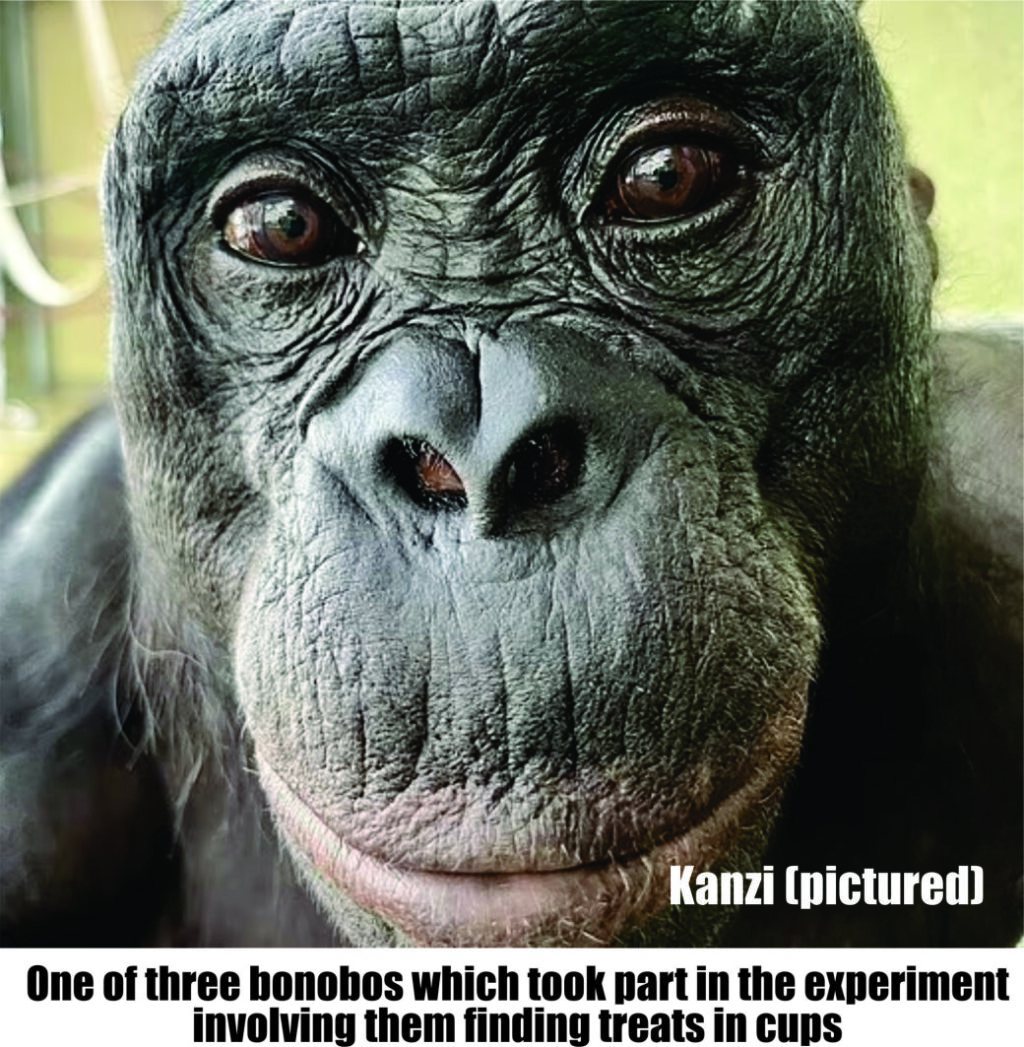
Research: BoldNEWS Africa Online Monitor New research suggests that apes, particularly bonobos, may possess an ability once thought to be uniquely human—the capacity to intuitively “read minds.”
Understanding what others know or don’t know is a complex cognitive skill that human children typically begin developing around the age of three. For decades, scientists have tried to determine whether animals, including chimpanzees and ravens, can also grasp this concept. Many experts remained skeptical, but new findings provide compelling evidence that bonobos can indeed “read” human minds and use this ability to communicate, especially when it comes to getting food.

The study focused on three bonobos—Kanzi (43), Nyota (25), and Teco (13)—who live at a research center in Iowa. The bonobos were involved in an experiment where they worked with a researcher to retrieve food items such as grapes, apples, peanuts, or Cheerios, hidden under one of three cups.
In the test, a second person hid the food under a cup while a researcher, sometimes obscured by a large cardboard barrier, attempted to find it. When the researcher couldn’t see where the food was placed, the bonobos could, in turn, recognize the researcher’s lack of knowledge. In a fascinating twist, the apes helped the researcher find the food by pointing to the correct cup. They were 29% more likely to point to the cup with the hidden food when the researcher was unaware, and did so roughly 1.5 seconds faster than when the researcher was aware of the food’s location.
Dr. Chris Krupenye, the senior author of the study and assistant professor of psychological and brain sciences at Johns Hopkins University, explained the significance of these findings: “The ability to sense gaps in one another’s knowledge is at the heart of our most sophisticated social behaviors, central to the ways we cooperate, communicate, and work together strategically.”
While the theory of mind—understanding that others have thoughts and knowledge separate from one’s own—has long been considered a trait exclusive to humans, this research challenges that view. “Many believe this ability is absent in animals, but this work demonstrates that humans and other apes share rich mental foundations that evolved millions of years ago in our common ancestors,” Dr. Krupenye said.
Historically, chimpanzees have been believed to exhibit a form of “mind-reading” when they make alarm calls about snakes, alerting others who have not seen the danger. However, some researchers questioned whether these calls were simply an instinctual response rather than a strategic communication method.
The bonobo study shows that apes are capable of holding two thoughts in their minds simultaneously—both their own knowledge and the awareness of another’s ignorance—and can act on this understanding in a cooperative manner.
The research, published in Proceedings of the National Academy of Sciences, offers new insight into the cognitive abilities of non-human primates and may rewrite our understanding of the mental capacities shared between humans and apes.




